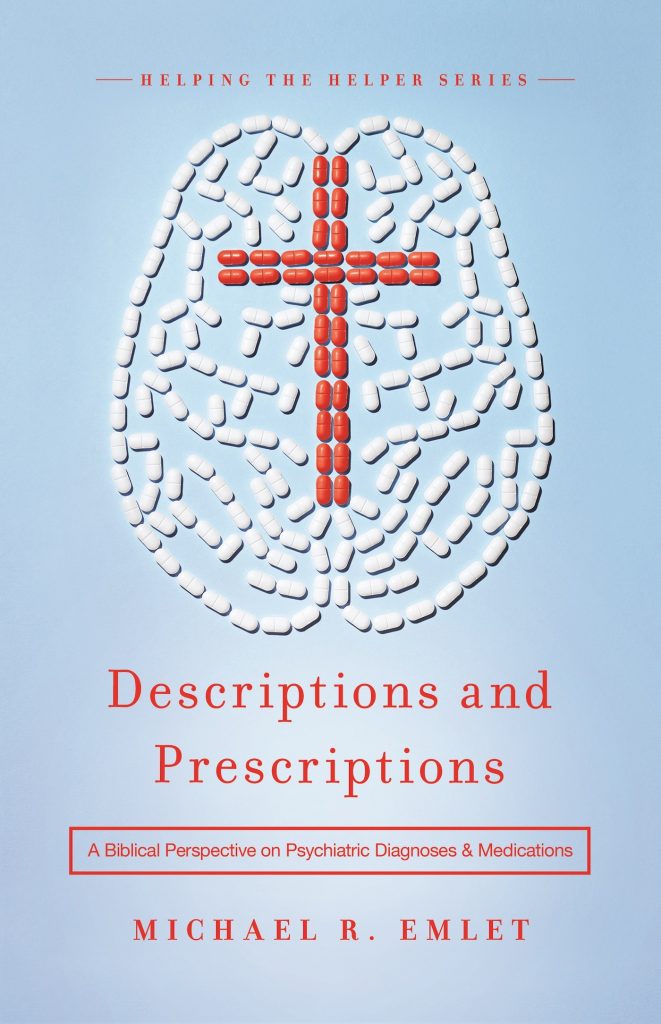What do you think when someone you know is diagnosed with a psychiatric disorder? Or has started to take a psychoactive medication? Do you say to yourself, “Finally, he is getting the help he really needs!” Or do you feel skeptical about either the diagnosis or the solution (or both), and wonder if what the person really needs is simply to trust in Jesus more?
It doesn’t take too many conversations in the church to realize that there are widely divergent views regarding the diagnosis and treatment of mental health issues. Like many, you may find yourself falling into one of two camps. Let me call this the Goldilocks Principle. What do I mean?
THE GOLDILOCKS PRINCIPLE
You may be one who is “too cold” toward psychiatric diagnoses. You’re highly suspicious of using these labels. You believe that they are secular understandings of the person that compete with biblical categories and solutions. At best you don’t think they’re helpful, and at worst you believe they are harmful and dehumanizing.
Or perhaps you are “too warm” toward psychiatric diagnoses. You may embrace them as nearly all-encompassing explanations of the person’s struggle. You may gravitate toward medical solutions and diminish the relevance of the biblical story for these particular problems. But is there a third way, a balance between these two extreme tendencies?
Similarly, you may be “too cold” toward psychoactive medications. You’re extremely wary of ever using them. If you’re honest, you believe that Christians really wouldn’t have to take psychiatric medication if their faith were robust enough. And what about those side effects—why risk it?
Or you may be among those who are “too warm” toward psychoactive medications. If a Christian has no problem using Tylenol for a headache, why shouldn’t she use an antidepressant when she is depressed? And about those side effects—they are invariably worth the benefit. But is there a third way, a balance between these two extreme tendencies?
SOMEWHERE IN BETWEEN
One goal of my book Descriptions and Prescriptions is to help move readers from either extreme—too cold or too hot—toward a view of psychiatric diagnoses and medications that is hopefully “just right.” Perhaps you don’t tend toward one of these extremes, but you are looking for the biblical and scientific framework that allows you to maintain that third-way position. That’s exactly what I hope to offer. I want to take seriously what help psychiatric categories and medications provide but also recognize their limitations.
There is no doubt that many people suffer greatly with emotions and patterns of thinking that bring grave hardship to them and to their loved ones. The pressing issue is how best to know and understand their struggles. And then, having understood, how best to provide compassionate and wise help. After all, we are called to “bear one another’s burdens and so fulfill the law of Christ” (Galatians 6:2). Psychiatric diagnostic classification and psychoactive medications provide a way to understand and help those who are burdened in particular ways.
DIAGNOSIS IS UNAVOIDABLE
Consider this list of diagnostic categories: Alzheimer’s disease, bipolar disorder, alcohol withdrawal, pedophilic disorder, attention-deficit/hyperactivity disorder, obsessive-compulsive disorder, antisocial personality disorder, autism spectrum disorder, and borderline personality disorder. They all represent diagnoses found in psychiatry’s standard reference text—The Diagnostic and Statistical Manual of Mental Disorders, better known as the DSM.
How do we understand the nature of psychiatric diagnoses? What do these diagnoses mean? Are they all equally valid? How much information do they truly provide about the person? Is it wise for Christians to use these secular categories, and, if so, how? How should they shape the way we minister to persons who come to us with such diagnoses? Do we need to become “bilingual”? That is, do we need to become fluent in using DSM categories as well as biblical ones if we want to be truly helpful to others? Are psychiatric diagnostic categories antithetical to and in competition with biblical categories? Parallel to biblical categories? Overlapping with biblical categories in some way?
These questions are important, particularly in our time and place. The language of psychiatric diagnosis is not only known within the mental health world but is commonly used within the general population as well. Terms such as OCD, PTSD, and ADHD are part of our culture in formal and informal ways. So we can’t afford to keep our heads in the sand with a dismissive and isolationist posture. Nor can we afford simply to accept the entire psychiatric diagnostic enterprise at face value. We need a balanced, biblically (and scientifically!) informed approach that is neither too warmly embracing nor too coldly dismissive. Striking this balance is important. This is not just an academic discussion within the walls of training institutions for pastors, counselors, psychiatrists, and other physicians. Consider what potentially happens as you move toward the extremes I mentioned in the introduction.
THE DANGERS OF TAKING SIDES
Let’s say you are “too warm” toward psychiatric diagnoses. What might that look like in practice if a person recently diagnosed with bipolar disorder came to your church or small group? It might mean emphasizing medical care to the exclusion of pastoral care because physicians (psychiatrists) are understood as the experts here. It could lead to overlooking broader biblical categories and themes for understanding and helping the person, including identifying and addressing issues of suffering, shame, guilt, sin, and responsibility. Bottom line: You will point to incomplete solutions. You will miss ministry opportunities. Your approach to the person is truncated.
What if you are “too cold” toward psychiatric diagnoses? What could that stance look like in practice with a person diagnosed with bipolar disorder? You may have a skeptical, anti-psychiatry posture that is off-putting to the person and inhibits building a relationship. You will be more likely to see his problems only as sin—as something he does—rather than as suffering or weakness he has to face. You may ignore potentially helpful physical components to the person’s total care, including medication. Bottom line: You will point to incomplete solutions. You will miss ministry opportunities. Your approach to the person is truncated.
Do you see how high the stakes are? I want us to move away from these two tendencies and toward a wiser middle ground. To do that, we need to examine the nature of psychiatric diagnoses more carefully.
The ultimate goal here is neither to vilify nor vindicate the psychiatric diagnostic system but to help those who struggle with disordered thoughts, emotions, and behaviors. To the extent that using psychiatric terminology helps with that goal, we must be open to that help. To the extent that using psychiatric terminology hinders that goal, we must offer wise and gracious critique. In both cases a gospel-centered approach full of rich biblical counsel must remain foundational to the way we minister.
Excerpted from Descriptions and Prescriptions: A Biblical Perspective on Psychiatric Diagnoses & Medication © 2017 by Michael R. Emlet. May not be reproduced without prior written permission.
DESCRIPTIONS AND PRESCRIPTIONS: A BIBLICAL PERSPECTIVE ON PSYCHIATRIC DIAGNOSES AND MEDICATIONS
Author and counselor Michael R. Emlet outlines a model of one-another ministry based on how God sees and loves his people primarily as saints, while bringing comfort to the sufferer, and faithfully speaking truth to the sinner.






